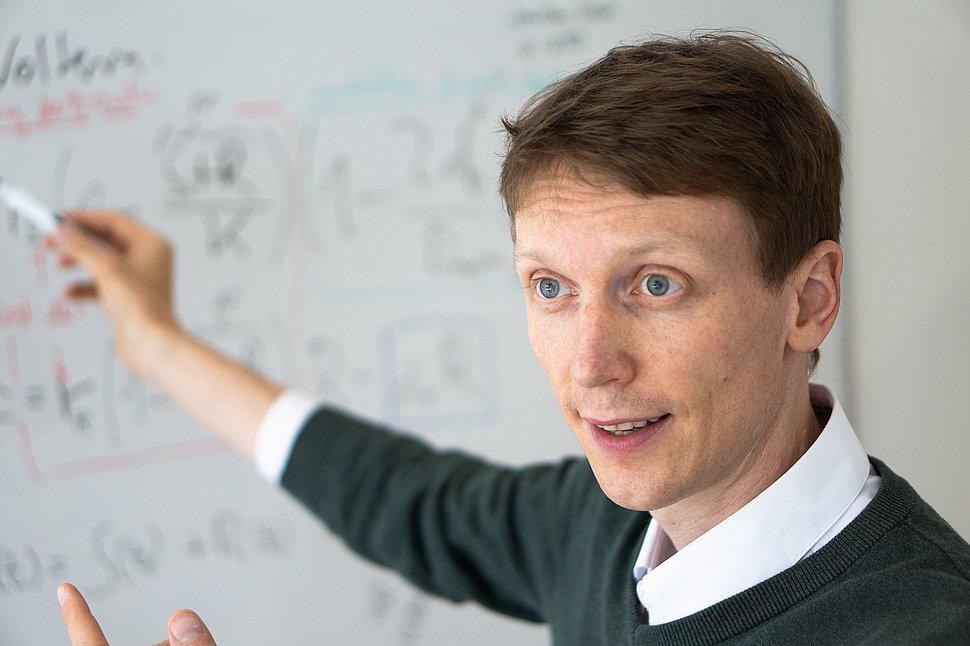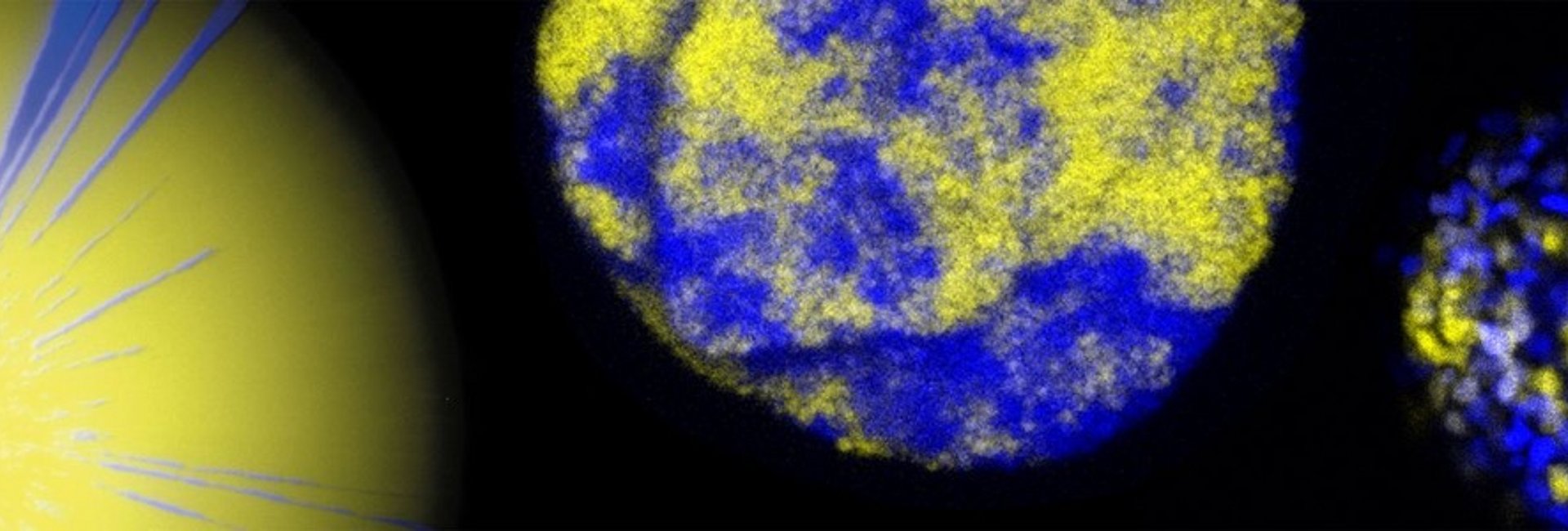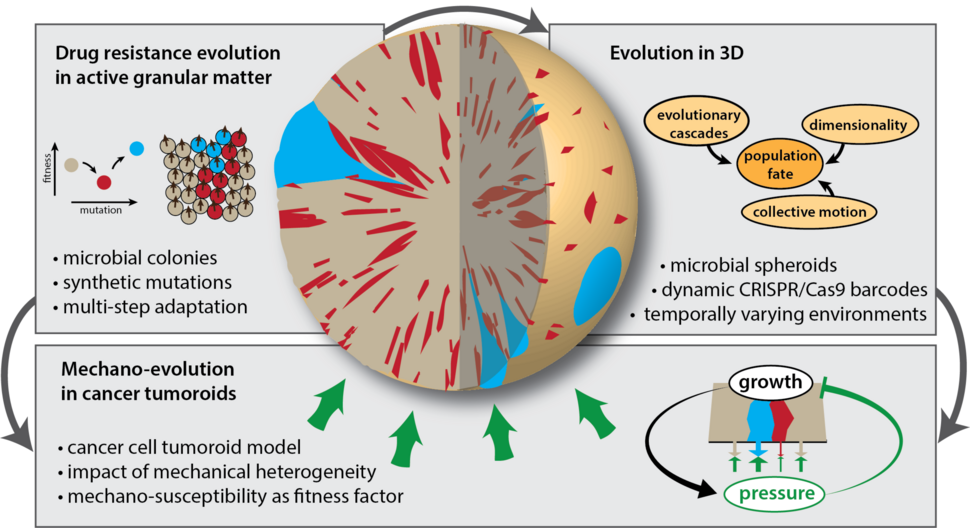Welcome to the Research Group Cellular Evolution
Cellular evolution, the process by which cells change their genetic code over time, is one of the most fundamental principles of life. At the same time, it is at the root of some of the most pressing challenges to modern healthcare, such as cancer and the emergence of drug resistance.
Our group studies how biophysical processes affect evolution in dense groups of cells such as tumors or microbial biofilms. Applying state-of-the-art optical, biophysical and genetic tools to a new class of tailored model systems allows us to track the complex dynamics which drive therapy resistance and treatment failure.
The insights gained help to advance new evolution-based treatment strategies.
A top-down-bottom-up approach to cellular evolution & therapy dynamics
Therapy resistance remains a significant challenge in modern healthcare and is intricately linked to evolutionary processes. However, how the collective dynamics in spatially structured populations, such as solid tumors or microbial biofilms, impacts the emergence of treatment resistance and therapy response remains unclear.
Our research aims to fill this gap by combining empirical insights from tailored in vitro tumor models with physics-based computer simulations. Our goal is to understand resistance evolution and treatment failure dynamics as emergent phenomena within a wider conceptual framework of actively proliferating granular matter.
Using a diverse array of tools, ranging from CRISPR-based gene editing and population-scale 4D imaging to Brillouin microscopy and real-time deformability cytometry (RT-DC), gives us unprecedented multimodal access. We use this data to develop a quantitative understanding of the factors shaping the multicellular dynamics within a tumor under therapy.
Building on the insights gained, we aim to enhance evolution-based therapies via advanced machine learning techniques, such as reinforcement learning and generative AI.
A particularly intriguing avenue is the combination of targeted therapy and immunotherapy in an adaptively alternating manner. In this context, we aim to decipher the mechanical heterogeneities within the cancer and immune cell populations, as well as the tumor microenvironment, and how their modulation can be exploited for improved therapy efficacy.
Our multidisciplinary approach aims to bridge the gap between physics-inspired fundamental research and biomedical applications to facilitate an insight-driven decision process in clinics.
Contact
Research Group Jona Kayser
MPI for the Science of Light
Cellular Evolution Lab
Staudtstr. 2
91058 Erlangen, Germany
Research team leader Dr. Jona Kayser

"Can we understand solid tumors as actively proliferating granular matter?"
Here you can find the scientific curriculum vitae of Dr. Jona Kayser
If you are interested in joining the group as a Master student, PhD student or Postdoc please contact us.










